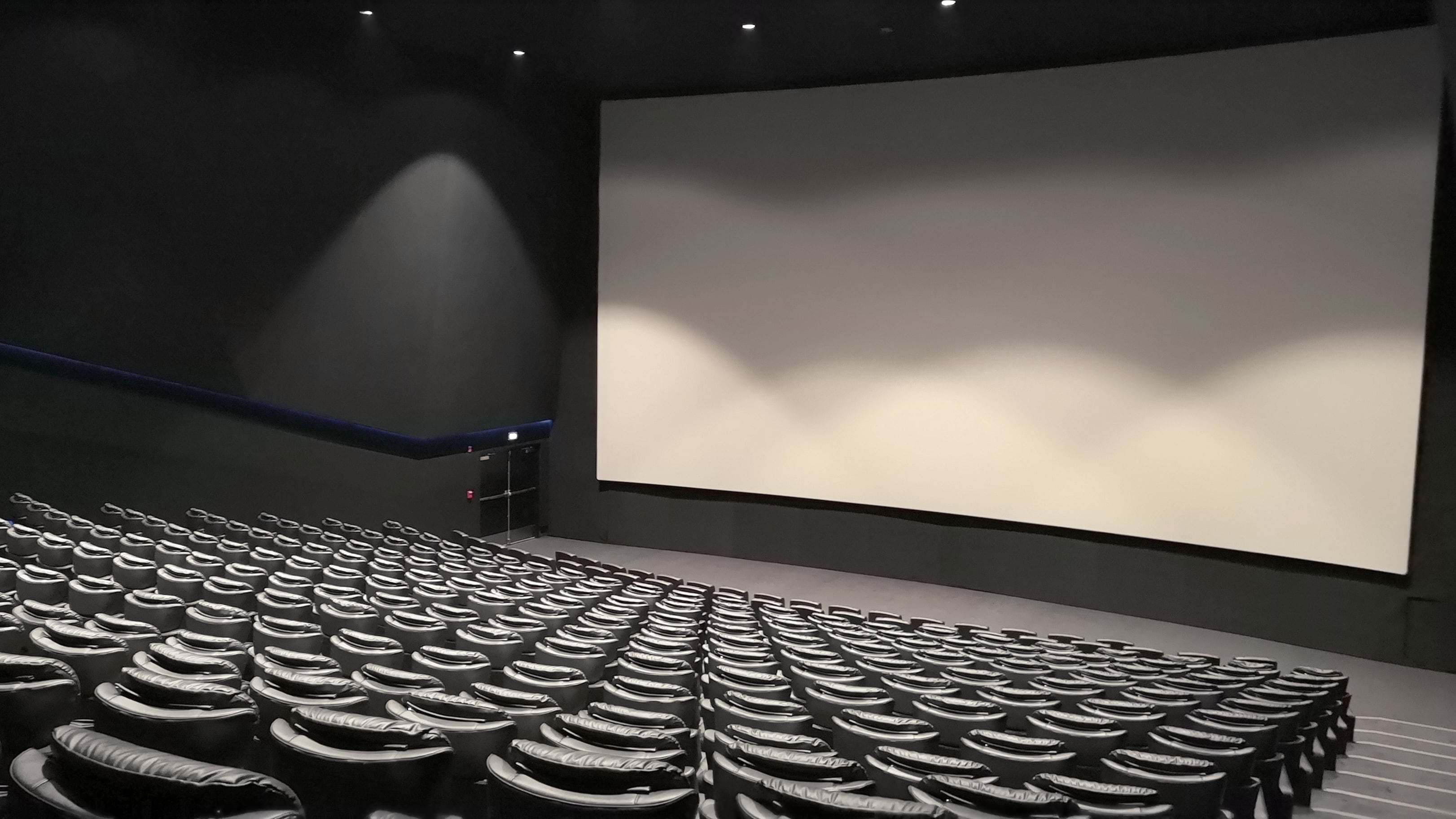The future of cinema post-Covid: is it looking bleak?
Opinion: Cinema chains have big hurdles to overcome

Sign up for breaking news, reviews, opinion, top tech deals, and more.
You are now subscribed
Your newsletter sign-up was successful
Movie theaters are beginning to reopen. Despite plenty of public disagreement over when entertainment venues should be opening their doors, seats are being prepped, projector lamps are being struck and the smell of popcorn is filling the foyers once again.
The likes of Odeon and Vue cinema chains are the first in the UK, with the former open as of July 4 and latter sticking to a July 10 date, while competitor Cineworld (and AMC in the US) are pushing their openings back as far as July 31, amid uncertainty over audience members’ safety and their willingness to come back to movie theaters already.
It’s a brand new world for the industry to adapt to, as many countries attempt to return to normality after passing the peak of the Covid-19 pandemic. The fallout the cinema industry faces delves far beyond the simple plan of getting bums in seats and instead extends into many other facets that will no doubt have long lasting ripple effects for years to come.
Simply watching a film is only one element of the movie-going experience, and this new world will be very different for patrons.
With the green light given in many countries for cinemas to open once again, many chains have come forward with opening dates and their plans on how to ensure guests feel safe in the auditorium environment. In the UK, Showcase Cinemas released a video on its social media channels, giving an in-depth look into the precautions the company will be taking. Hand sanitiser stations are located throughout, protective screens have been installed at till points and cleaning procedures have changed with staff using an antiviral spray to disinfect each screen after use.
Other chains have similar plans, but many have omitted the necessary need for face masks. In the US, AMC Theatres stated that guests won’t be required to wear face masks for entry. The decision unsurprisingly met vocal opposition, and the company swiftly amended their initial statement to announce that face masks were mandatory.
“This announcement prompted an intense and immediate outcry from our customers, and it is clear from this response that we (AMC Theatres) did not go far enough on the usage of masks,” the company said in a revised statement. “At AMC Theatres, we think it is absolutely crucial that we listen to our guests. Accordingly, and with the full support of our scientific advisors, we are reversing course and are changing our guest mask policy.”
Sign up for breaking news, reviews, opinion, top tech deals, and more.
- New movies: what you can watch when theaters reopen
Masking indecision
It’s this sort of mixed messaging that’s going to temper with audience expectations of a safe experience. The industry needs to come together and devise one concise message for the public and create an element of trust between the two parties.
It’s worth homing in on the day-to-day realities of cinemas reopening, too. Guest management can be difficult at the best of times – and as someone who has worked within the industry in a management position for over five years, there’s only so much that can be done from a staff perspective. Everyone’s more than likely had one cinema experience that’s been ruined by someone on their phone, a fight between other guests or a disturbance from other members of the audience. In a post-COVID world, these issues are only going to become more prevalent – and harder to solve.
How do you begin to tackle a guest concern about another audience member coughing throughout the film? While defusing situations is one of the skills staff are required to learn in order to maintain a relaxed and efficient trip to the cinemas, these new and challenging situations will require new solutions.

Will the pull of blockbuster films be enough?
There also has to be content that viewers will want to leave their safety bubble to see. This summer hopes to bring movies such as Tenet and Mulan as heavy hitters to reignite the industry – both of which have now faced another delay till mid-August.
Showing older films at a discounted price is going to be the case for the first few weeks. Titles such as The Shawshank Redemption, The Dark Knight and Despicable Me will be given a new lease of life in the attempts to drag in an audience. The question remains whether older titles have the pulling power to bring in guests, especially with the sudden rise in drive-in cinemas offering a completely unique experience for cinematic classics.
Both AMC and the UK based chain Cineworld have both been quick to act on this fact and have since delayed its opening to July 31, to open when films with demand intend to be released. “In line with recent changes to upcoming film release dates, we have made the decision to move our re-opening date,” Cineworld announced on their website. “with the on-going pandemic, this new date remains subject to final confirmation.”
With both distributors and cinema chains playing chicken on who will stick to a date first, any release dates going forward are essentially placeholders. The unease of both parties will spark not only confusion to the public, but constant doubt on whether now is the right time. The ability to sustain a market with older titles is a gamble at best and if cinemas fail to hit attendance with such features, certain chains could end up in further crisis.
If cinemas fail to bring an audience then two options will arise. To close until new releases finally commit to a date or draw back on resources for the time being. This could include reduced staff, even shorter opening hours and a smaller selection of films. All of these pose threats with less staff not being able to clean efficiently, shorter opening hours having stricter film times and a smaller slate of films failing to bring in those that feel they are ready to go back.

Home safe home
Lockdown has forced many to stay in their homes and undoubtedly utilise many streaming services and rentals, which certain distributors have capitalized on. Universal’s decision to follow a streaming model even after cinemas reopen has ruffled a few feathers with chains such as AMC, who are now refusing to show the company’s titles in the future. In a letter directed to the distributor the company stated that “effectively immediately AMC will no longer play any Universal movies in any of our theaters in the United States, Europe or the Middle East.” Realistically, cinemas doing this will no doubt shoot themselves in the foot as they inevitably force viewers to stay in the comfort of their homes to watch big-name films.
With the economic repercussions of lockdown facing many, renting a film for an entire family is going to be far more sustainable than a cinema trip with inflated prices. Showing older films for a discounted price is a great tactic to attempt to restart the industry, but once the big blockbusters eventually hit screens such as Tenet and Mulan, ticket prices will almost certainly shoot up to recoup costs. The question is whether audience members will feel secure placing a price on the risk of their health, or sacrifice the big screen experience for a safer (and cheaper) evening?
How cinemas will operate in a year or even a month is uncertain and it’s going to be an experiment of trial and error to get the formula right. Both guests and staff will have numerous concerns about the revival of cinemas and it’s up to the industry to come together to conjure a solution. With mixed messaging on face masks, and partnerships squandered between distributors, the industry is in a maelstrom of turmoil – and it needs to come together collectively to find a solution or risk losing an audience permanently.
- Don't feel safe going out? Build your own home cinema setup instead

Daniel Hollis is a Freelance Games Journalist. He freelanced for various sites including Eurogamer, NME, VG247, Fandom, Tech Radar, Digital Trends, Gamasutra and Daily Star.